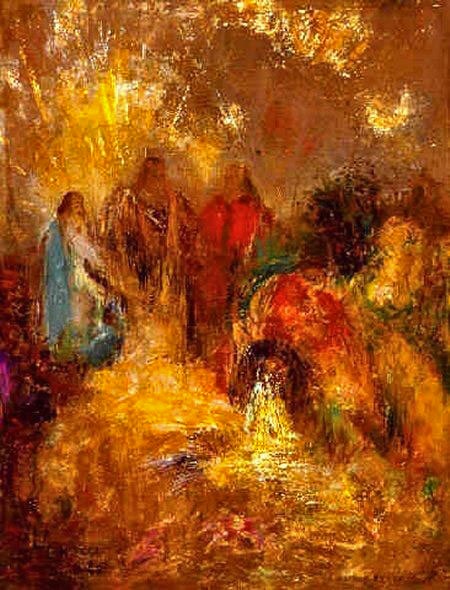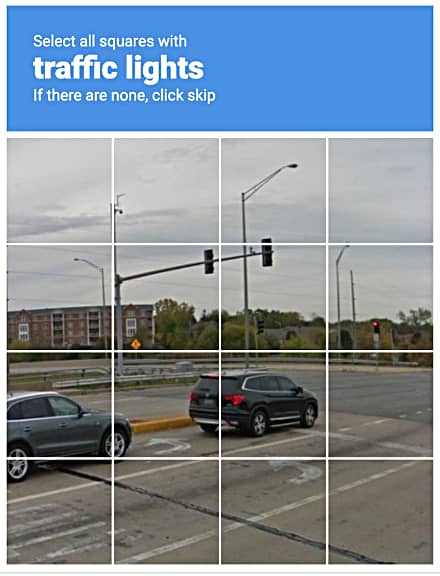
Enkindled Souls by Deborah Beach Giordano
In the Beginning ...
This passage, from Acts, Chapter 2, is known as “The Birth of the Church:”
On the day of Pentecost, the disciples were gathered together.
[Were they still hiding from the authorities? We don’t know, but they were almost certainly meeting in secret.]
All at once there was a terrific blast as if a tornado had touched down, roaring through the house. Bright, shimmering flames like fiery tongues appeared, reaching out, resting upon each of them. All were inflamed with the Holy Spirit, and they began to speak in other languages, as the Spirit gave them ability.
[Now, I don’t think they were speaking in other languages; I think they were shouting, calling out: “Hey! Everybody! Listen up! You’ve gotta hear this!” They were on fire with the Holy Spirit; they simply could not stay quiet; and here’s why I think so, as the story continues:]
The city was filled with devout Jews from every nation who had come to celebrate Pentecost and this sound attracted a crowd.
[It was the sound that drew people in from all around; it was loud, emphatic, excited, energized, alive. There was also a light-heartedness about it, a sense of delight. ]
“What’s going on here?” the people asked, "What can this mean?" "Are these people drunk?"
[Now stick with me, because I want to take a quick look at another “birth story.” This is from the book of Genesis, chapter Two, verses 4 and 7:]
On the day that the Lord God made the earth and the heavens, when no plant of the field was yet in the earth and no vegetation of the field had yet sprung up… [on that day] the Lord God formed the human from the dust of the earth and breathed into his nostrils the breath of life, and the human became a living being.
Thus ends the Scripture.
Truly Human
And God breathed into the human the breath of life and he became a living being.
 The Hebrew scholar Ethan Dor-Shav interprets the word describing God’s action at creation not as breathing the human into being, but as kindling — as you would enliven a spark into a flame; as warming Adam into life. I like that: it speaks to a sense of the warmth of care and concern, the passion and emotion that makes us truly human. It is not merely our breath, but our hearts that matter, it is not merely that we live, but how we live.
The Hebrew scholar Ethan Dor-Shav interprets the word describing God’s action at creation not as breathing the human into being, but as kindling — as you would enliven a spark into a flame; as warming Adam into life. I like that: it speaks to a sense of the warmth of care and concern, the passion and emotion that makes us truly human. It is not merely our breath, but our hearts that matter, it is not merely that we live, but how we live.
 Sadly, it can sometimes be hard to keep that flame alive, to retain that life-giving warmth; the care and concern for others, the love of God and love of neighbor we are called to show forth. It can grow dim almost without our noticing amid the stress and craziness all around us; we grow cold, cynical, suspicious and uncaring. We hoard our compassion like misers, handing it out piecemeal, in dribs and drabs, only to some but not to others.
Sadly, it can sometimes be hard to keep that flame alive, to retain that life-giving warmth; the care and concern for others, the love of God and love of neighbor we are called to show forth. It can grow dim almost without our noticing amid the stress and craziness all around us; we grow cold, cynical, suspicious and uncaring. We hoard our compassion like misers, handing it out piecemeal, in dribs and drabs, only to some but not to others.

Rather than bless and comfort, we become contributors to suffering and misery — and no one suffers more than we, as our hearts grow ever colder, our spirits grow dull and dim. Joy and laughter become faint memories; there is no life in us.
So we ingest vitamins and raw foods, drink protein shakes and herbal teas, immerse ourselves in yoga, pilates, long-distance running, on-line gaming, gambling, porn, politics, anything to make us feel alive. Then we take pills and potions to relax, to sleep, to forget for a few hours, to silence the throbbing ache where our heart used to beat.
 And still we search. That spark remains, scratching at us, urging us, prodding us. Sizzling in our ears. Life! Not mere breathing, but warmth, hope and joy and fun and laughter, jokes and just being silly; being at ease in the world, taking a childlike delight in bugs and bees and clouds and trees. Remember? But what can be done? We’ve tried temporary fixes but nothing breathes life into that spark.
And still we search. That spark remains, scratching at us, urging us, prodding us. Sizzling in our ears. Life! Not mere breathing, but warmth, hope and joy and fun and laughter, jokes and just being silly; being at ease in the world, taking a childlike delight in bugs and bees and clouds and trees. Remember? But what can be done? We’ve tried temporary fixes but nothing breathes life into that spark.
Many of us have tried The Church: we’ve gone to Sunday services, listened to sermons and sung hymns, but found no There there. Words were spoken, but we didn’t hear The Word that gives life. We left as we entered, in a kind of stasis: unchanged, unmoved. Or, worse, exhausted by demands and urgings: to give and act and do, invest and accomplish …. when what we really needed was an infusion of Celestial Light and Power for our souls.
We were left cold.
What to do?
Do Not Despair
 Where is the life we seek? The search has often been a long, sad, tiresome slog. We’ve been shut down, silenced, shamed, threatened; our spirits cringing like whipped dogs fearful of another blow. How long, O Lord?
Where is the life we seek? The search has often been a long, sad, tiresome slog. We’ve been shut down, silenced, shamed, threatened; our spirits cringing like whipped dogs fearful of another blow. How long, O Lord?
The answer to our troubles has been right in front of us all along: the most remarkable, powerful, well-documented “kindling event” ever. It was Pentecost, when the Holy Spirit blew the doors wide open.
An Extraordinary Event
There they were in Jerusalem, those disciples, waiting, waiting, waiting, waiting — edgy, uncomfortable, in a place where they didn’t fit in, surrounded by hostility and suspicion, unsure of even what it was they were waiting for. They believed — they hoped in Jesus’ promise, but what if .. ? Their world had been turned upside down — twice! The future was uncertain, their situation precarious; always on the alert, watchful, wary, wondering, hopeful, fearful — with nothing to do, but wait and pray. And wait. And wait. And wait.
Hmmm. That sounds familiar, doesn't it? A collection of souls that were kind of sad, kind of stuck, kind of isolated, kind of confused. And really really tired of waiting.
Then something happened.

Suddenly, an extraordinary storm struck the house where the disciples were gathered. It began with a fierce blast of wind that nearly blew the roof off the house, roaring, throbbing, thundering around them. Then a blinding flash: shimmering, scintillating, fiery fingers descended; pressing, prodding, caressing, embracing those who were there.
Then, perhaps, a sudden, absolute stillness, as if all Creation was holding its breath.
And behold! The spark was kindled, the fire was ignited; the disciples were set aflame; their hearts strangely warmed, their souls radiant, their spirits infused with a new understanding, new courage. They no longer believed, or hoped, but they knew of God’s wondrous power as revealed in Jesus, the Christ. He is the Messiah, the Revealer of God’s will and desire; the Truth that cannot be silenced, the Life that cannot be extinguished, the Love that keeps on giving.
All were inflamed with the Holy Spirit, and they began to speak in other languages, as the Spirit gave them ability.

I imagine our enkindled apostles pouring out of the house and into the street calling to everyone they saw: “You! Yes, you! And you, and you, and you — every person within the sound of my voice, of every nation, creed, and culture, this message is for you! God is crazy about you, yearns for you so deeply and truly that He will do anything to reach you, and nothing can get in His way — even though the world tried to kill His Messenger, God prevails! No matter who you are, no matter what you’ve done or said or thought can get in the way. You are loved, deeply and truly, inexhaustibly, eternally.
"Come! Join in the celebration!”
Laughing, singing, perhaps dancing, so giddy with childlike delight that their hearers thought they were drunk — at 9 o’clock in the morning!
The Way It Is
Pentecost is the Christian Foundation Story, Ground Zero of our faith; it established Whose We Are, How Precious We Are, Who We Follow, and How We Are to Live.
It is amazing! Wondrous! A true miracle. Jesus Christ was the lived, embodied proclamation of the essential, absolute, undeniable, Ultimate Fact: God’s love is so effusive, so great, so powerful that it streams forth wherever it will — and nothing can get in the way. Nothing.
Pentecost gives lie to the claims of those who profess to know who’s in and who’s out of God’s favor. The Holy One will do whatever, whenever, for whomever; unconfined, unconstrained, uncontrolled.
 Ours is no calculating, cold-blooded, conditional religion: no matter who you are, you’re invited in. There are no boxes to check, no union cards, no Captcha quizzes to pass, no ordeals to endure.
Ours is no calculating, cold-blooded, conditional religion: no matter who you are, you’re invited in. There are no boxes to check, no union cards, no Captcha quizzes to pass, no ordeals to endure.
But there is a catch: it requires courage and daring. It requires a willingness to encounter the Living Presence; to meet Christ — the extraordinary, radiant, lightning strike of God’s unconditional, unlimited, overpowering grace; to open your heart to a warmth — a heat, a flame, a fire! a power that cannot be managed, directed, or controlled, only experienced. Only lived.
The Kindled Flame
Once ignited, that divine flame has a power of its own. You start to fall back into a pattern of hate or resentment, and all at once you don’t feel so good. Doom-scrolling through the internet holds no pleasure; hateful habits leave you cold; to curse and condemn is exhausting — and it makes your heart hurt; reports of violence, death, and destruction chill you to the bone.

And you are continually surprised by sudden bursts of beauty. A perfectly formed leaf, a sunset of watercolor pastels, clouds forming and reforming in endless patterns across the sky, a scattering of flower petals. A smile. Dove calls and crow complaints, apples and oranges and acorns — all sorts of astonishing things carry divine messages that make you want to laugh. You discover that you are breathing; you can sit in serene, holy stillness without looking at your phone for minutes at a time, your heart is warm, and your soul blossoms with gratitude.
You start living as a human being is designed to do: your heart warm with love, your soul enlivened, your spirit infused with courage, hope, and good humor. That is the power of God, that is the Way of the Gospel, that is the Good News of Jesus Christ.
Peace I leave with you; My peace I give to you. I do not give to you as the world gives. Do not let your hearts be troubled, and do not let them be afraid.
Come! Join in the celebration!
Deborah ✝
A Prayer for Life
Glorious One, You have set my soul alight — and I want to join the divine celebration! Inspire me and guide me to become the joyfully alive person You designed me to be.
Illuminate my understanding, warm my heart, and encourage my spirit that I may become a faithful bearer of Christ’s radiant Good News. And I will fear no evil, for You are with me.
Amen.
A Spiritual Exercise
Learn to live into your commitment to keeping the holy flame alive amid a world that seeks to extinguish every trace of divine Radiance. Pray with confidence and courage.
Special Announcement
Over the next several months, in addition to other subjects, I will be exploring the path of solitary Christians; those who seek to follow the Way of Christ apart from the confines of the corporate church. Stay tuned!